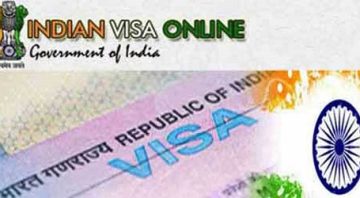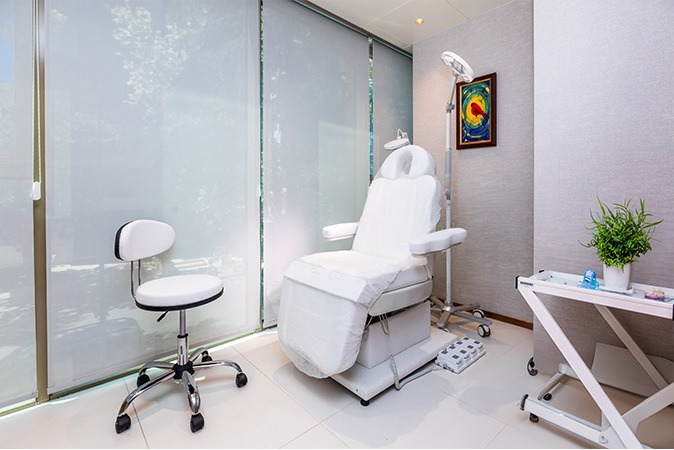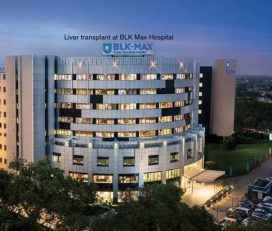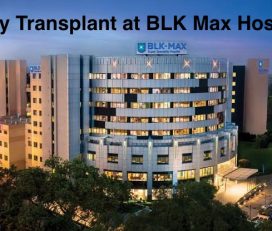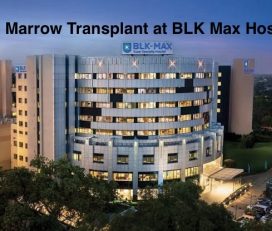
Cardiology in Kenya
Are you suffering from cardiovascular diseases and searching for cardiology in Kenya? However, Cardiologist in Kenya sees the increasing cases of heart problems in Kenyans. The leading hospitals have a cardiovascular facility for cardiac testing and preventive treatment. These hospitals also cover the cardiology cost in Kenya for these heart diseases.
In addition, comprehensive care for cardiology in Kenya provides a cardiac program that involves various care, from preventive and indicative monitoring to treatment and rehabilitation services, with the only purpose of detecting and curing cardiac illness before it develops into life-threatening.
Kenyan cardiologists treat patients suffering from heart disease and heart health complications, such as pacemaker difficulties, echocardiogram illnesses, coronary Intervention, etc. The National Health Insurance Fund (NHIF) provides improved financial services and treatment locally and abroad for cardiology in Kenya.
The hospitals have highly skilled staff with high-tech technologies and pioneering methods for patients suffering from heart diseases at the lowest cardiology cost in Kenya. At expertchikitsa.com, we will help you find the economical cardiology cost in Kenya in addition to the treatment plan, second opinion, and procedure details of cardiology in Kenya.
Cardiology Cost in Kenya
An open-heart surgery costs range from Sh800,000 and Sh1 million in a private hospital in Kenya, depending on the level of heart damage. Closed heart surgery is low-priced at about Sh500,000 in a private hospital in Kenya, whereas a single heart valve costs Sh175,000, and one patient can need up to four-valve replacements. The cost of an ECG test is about Sh300 and Sh2,000 in Kenya. An NHIF insurance covers bed charges, heart valve replacement, and open-heart surgery.
Cardiology Cost in Kenya
| Cardiac Surgery in Kenya | Average Cost in USD | Average Cost in Kenya Shilling (KES) |
| Open Heart Surgeries – CABG | $6,346 | Ksh 761,472 |
| Single Valve – AV Replacement | $12,461 | Ksh 1,495,368 |
| Double Valve Replacement | $15,577 | Ksh 1,869,264 |
| AV/MV Repair | $9,346 | Ksh 1,121,472 |
| CABG + MV Repair | $9,761 | Ksh 1,171,368 |
| AV Repair + MV Repair | $9,761 | Ksh 1,171,368 |
| CABG +AV Repair | $9,761 | Ksh 1,171,368 |
| Minimally Invasive CABG | $11,632 | Ksh 1,395,792 |
| Minimally Invasive ASD Closure | $11,632 | Ksh 1,395,792 |
| Minimally Invasive MV Repair | $11,632 | Ksh 1,395,792 |
| CABG +MV Replacement | $13,707 | Ksh 1,644,840 |
| CABG + DV Repair | $11,632 | Ksh 1,395,792 |
| Lobectomy/ Pneumonectomy | $8,307 | Ksh 996,840 |
| TV Repair | $9,346 | Ksh 1,121,472 |
| AICD | $4,500 | Ksh 540,000 |
| ASD Closure | $5,500 | Ksh 660,000 |
| Aortic Valve Replacement | $5,800 | Ksh 696,000 |
| Aortic valve stenosis | $6,200 | Ksh 744,000 |
| Aortopulmonary window | $5,500 | Ksh 660,000 |
| Arteriovenous Fistula with Graft | $6,800 | Ksh 816,000 |
| Balloon Valvotomy | $4,800 | Ksh 576,000 |
| Bentall Procedure | $4,300 | Ksh 516,000 |
| Biventricular Pacemaker Implantation | $8,500 | Ksh 1,020,000 |
| CABG | $6,500 | Ksh 780,000 |
| CRT-D | $9,500 | Ksh 1,140,000 |
| Cabrol Procedure | $8,400 | Ksh 1,008,000 |
| Cardiac Assessment | $400 | Ksh 48,000 |
| Cardiac Electrophysiology Study | $800 | Ksh 96,000 |
| Cardiothoracic Surgery | $3,500 | Ksh 420,000 |
| Coronary Angiography | $3,500 | Ksh 420,000 |
| Coronary Angioplasty | $3,500 | Ksh 420,000 |
| Double Chamber Pacemaker Implantation | $12,500 | Ksh 1,500,000 |
| Double Valve Replacement | $7,500 | Ksh 900,000 |
| Electrophysiology Study & Radio Frequency Ablation | $4,900 | Ksh 588,000 |
| Heart Port Surgery | $3,500 | Ksh 420,000 |
| Heart Transplant | $45,500 | Ksh 5,460,000 |
| Heart Valve Replacement | $5,500 | Ksh 660,000 |
| MVR (Mitral Valve Replacement) | $6,500 | Ksh 780,000 |
| Minimally Invasive Direct Coronary Artery Bypass | $5,500 | Ksh 660,000 |
| Pacemaker Implantation | $7,500 | Ksh 900,000 |
| Patent Ductus Arteriosus device closure (PDA) | $6,500 | Ksh 780,000 |
| Right Heart Catheterization | $12,500 | Ksh 1,500,000 |
| Single Chamber Pacemaker Implantation | $9,500 | Ksh 1,140,000 |
| Tricuspid valve replacement surgery | $5,500 | Ksh 660,000 |
| Ventricular Septal Defect Closure (VSD) | $8,500 | Ksh 1,020,000 |
What is Cardiology?
Cardiology is a part of medicine that handles the conditions of the heart and the cardiovascular system. The area involves medical finding and curing congenital heart defects, coronary artery disease, heart failure, valvular heart disease, and electrophysiology.
Physicians who study in this field of medicine are called cardiologists, an area of internal medicine. Pediatric cardiologists are pediatricians who focus on cardiology.
What Does a Cardiologist do?
A cardiologist is a specialist who can cure chest pain, high blood pressure, and heart failure, along with problems with heart valves, blood vessels, and other heart and vascular issues. They may order tests like electrocardiograms, echocardiograms, and CTs (computed tomography). In addition, a cardiologist can do a physical examination and talk about symptoms and medical and family history with you.
What Diseases do Cardiologists Treat?
Cardiologists can manage many hearts and vascular conditions, contain:
-Atherosclerosis
-High blood pressure
– Angina (chest pain)
-High cholesterol
– Sudden cardiac arrest
-Heart failure
-Heart attack
-Blood clots
– Atrial fibrillation and other heart rhythm conditions
-Endocarditis
-Cardiogenic shock
-Heart valve difficulties
-Cardiomyopathy
-Heart abnormalities
-Myocarditis
-Congenital (from birth) problems
-Difficulties with the aorta (aneurysm, stenosis)
-Problems with arteries (peripheral artery disease, subclavian artery disease, renal artery disease, coronary artery disease)
– Stroke
Types of Tests a Cardiologist do
A cardiologist can do these tests, but other healthcare specialists may carry out some of these tests:
-Cardiac catheterization
-Chest X-ray
– Cardiac MRI (magnetic resonance imaging)
-Coronary angiogram
-Stress tests
-Electrocardiogram (EKG)
– Echocardiogram
-Transesophageal echocardiogram (TEE)
-Holter monitor
-Event monitor
-Implantable event recorder/implantable loop recorder
-Cardiac CT (computed tomography)
Types of Cardiology Surgery in Kenya
Open Heart Surgeries – CABG: Coronary artery bypass graft surgery (CABG) is used to treat coronary artery problems. Coronary artery disease (CAD) is the contraction of the coronary arteries – the blood vessels that transport oxygen and nutrients to the heart muscle. CAD begins from a buildup of fatty material inside the walls of the arteries. Open-heart surgeries cure heart complications such as heart failure, congenital heart defects, arrhythmias, aneurysms, and coronary artery disease. During the open-heart procedure, a surgeon cuts via the breastbone and opens the ribcage to view the heart. The open-heart surgery is performed in two methods: on-pump and off-pump. Open Heart Surgery cost in Kenya is Ksh 761,472($6,346).
Single Valve – AV Replacement: Aortic valve repair and replacement are methods to treat an injured or diseased aortic valve. An unhealthy or damaged aortic valve can affect blood flow and force the heart to pump the blood more and transport blood all over the body. An Aortic valve repair or aortic valve replacement can enhance blood flow, decrease symptoms of heart valve disease and extend life—AV-replacement surgery types: Traditional Aortic Valve Surgery, Minimally Invasive Aortic Valve Surgery. The kinds of aortic valve illness are Aortic valve regurgitation, Aortic valve stenosis, and other aortic valve complications present at birth (congenital heart defects). Single Valve – AV Replacement cost in Kenya is Ksh 1,495,368 and $12,461.
CABG + MV Repair: Coronary artery bypass grafting (CABG) is a technique that those who have coronary artery disease (CAD) may undertake to augment blood flow to the heart. During a CABG process, those with leakage in one heart valve- the mitral valve- can get a procedure that restores the valve.
Mitral valve repair and replacement are surgery to fix or change a leaky or firm mitral valve in the heart. Different kinds of mitral valve diseases, such as Mitral valve regurgitation and valve stenosis, while types of Mitral valve repair or replacement surgery are open-heart, minimally invasive, robot-assisted heart surgery, and catheter-based technique. CABG + MV Repair cost in Kenya is Ksh 1,171,368($9,761).
Minimally Invasive CABG: The surgeon exposed the heart via a small cut between the ribs without having to make an incision on the bones. In this method, the patient heart does not need to stop, and most patients don’t require a heart-lung bypass machine.
The procedure is as effective as the traditional method. The benefits are faster recovery time, a lesser risk of problems, not much pain and scarring, Less risk of stroke and arrhythmia, pretty low chances of blood loss, and lesser requirement for blood transfusions. The Minimally Invasive CABG surgery price in Kenya is Ksh 1,395,792 while $11,632.
Minimally Invasive MV Repair: Minimally invasive mitral valve repair is surgery to rectify a difficulty in the mitral valve. The mitral valve aids in blood flow via your heart correctly. This technique is used to correct a leaky or constricted mitral valve. Cardio surgeons do minimally invasive mitral valve repair via one or more small chest openings.
Minimally invasive mitral valve repair cures Mitral valve regurgitation and valve stenosis. The surgery advantages include faster curing and recovery and less pain. Minimally Invasive MV Repair cost in Kenya is Ksh 1,395,792 and $11,632.
TV Repair: Tricuspid valve replacement and repair are surgical methods to cure diseases affecting any of the four heart tricuspid valves. The operation can fix the symptoms and elevate survival in people with tricuspid regurgitation or tricuspid stenosis. Traditional tricuspid valve surgery entails open-heart surgery. However, less invasive procedures may also be accessible. Tricuspid valve heart diseases are Tricuspid regurgitation and Tricuspid stenosis. TV Repair surgery cost in Kenya is Ksh 1,121,472($9,346).
AICD: An automated implantable cardioverter defibrillator (ICD or AICD) utilizes electrical impulses to return the heart rhythm to a normal form. Old-aged people, who have a hereditary condition, have heart disease issues or have difficulty with their heart fit in the criteria for taking an ICD fit. Living with an ICD involves routine monitoring by the doctor to check the ICD settings, battery life, and the condition of the heart. AICD price in Kenya is Ksh 540,000 and USD 4,500.
ASD Closure: ASD closure is a method to close an atrial septal shortcoming (ASD). An ASD closure is a hole in the heart among the two upper chambers. The technique employs a device to plug the hole, a patch to cover it, or joints to sew it to shut it down. It may include open-heart surgery or a minimally invasive procedure with the help of a catheter to correct the closure device. Many congenital heart defects are triggered by a blend of genetics and factors linked to the mother. ASD Closure cost in Kenya is Ksh 660,000 and $5,500.
Aortic Valve Replacement: An aortic valve replacement is a type of open-heart surgery performed for problems with the heart’s aortic valve. The reason two changes the aortic valve may involve is the valve has become constricted (aortic stenosis), and the valve is leaking (aortic regurgitation). The most critical risks of an aortic valve replacement are wounds, lung, bladder, or heart valve infections, blood clots, strokes, a temporarily uneven heartbeat (arrhythmia), and decreased kidney function for a few days. Two types of Aortic valve replacement are mechanical valves and biological valves. Aortic Valve Replacement surgery cost in Kenya is Ksh 696,000($5,800).
Aortic valve stenosis: Aortic valve stenosis is used when the aortic valve in the heart becomes constricted or choked. It hinders the normal blood flow out of the heart, triggering heart damage, significant health complications, and even death. Aortic stenosis is cured by medication and valve repair, and valve replacement. Aortic valve stenosis price in Kenya is Ksh 744,000 and $6,200.
Aortopulmonary window: Aortopulmonary window is a heart problem where a hole joining the major artery takes blood flows from the heart in the body (the aorta) and the one that transports blood from the heart to the lungs (pulmonary artery). This problem arises congenital at birth. The symptoms of the aortopulmonary window are babies usually don’t feed well, have fast breathing, are irritable, and exhaust quickly. Aortopulmonary window cost in Kenya is Ksh 660,000 while $5,500.
Bentall Procedure: The Bentall procedure is a kind of open-heart surgery required to mend the aortic root and the aortic valve, including for an aortic aneurysm in this part of the aorta. The procedure is named for Hugh Bentall. Heart diseases are used for Aortic regurgitation, Marfan’s syndrome, Aortic aneurysm, and Aortic dissection. Bentall Procedure cost in Kenya is Ksh 516,000($4,300).
Cardiothoracic Surgery: Cardiothoracic surgery, also called thoracic surgery, is an area of surgery relating to organs in the thorax (chest) involving the heart and lungs. This surgery treats from heart failure to pulmonary embolism to esophageal cancer. Cardiothoracic surgery may be open, endoscopic (a.k.a. laparoscopic or thoracoscopic), or robotic. Cardiothoracic surgery is done on adults, children, and infants and may even be attempted in unborn babies with focused in-utero methods. Cardiothoracic Surgery cost in Kenya is Ksh 420,000($3,500).
Coronary Angiography: A coronary angiography, also known as a cardiac angiogram, catheter arteriography, or cardiac catheterization, is a test to detect a blockage in a coronary artery. A patient is at risk of a heart attack if he has unstable angina, atypical chest pain, aortic stenosis, or is unclear about heart failure. During coronary angiography, a contrast dye will be inserted into your arteries via a catheter (thin, plastic tube). At the same time, surgeons view how blood flows via the heart on an X-ray screen. Coronary Angiography cost in Kenya is Ksh 420,000 and $3,500.
Coronary Angioplasty: Coronary angioplasty, also termed percutaneous coronary intervention, is a method to open blocked heart arteries. This method employs a tiny balloon catheter injected into a choked blood vessel to make it broad and help flow blood to the heart. It is used to cure the accumulation of fatty plaques in the heart’s blood vessels. This buildup is a kind of heart disease acknowledged as atherosclerosis. Angioplasty may be a treatment used for those who have sought medications or lifestyle changes but not worked in their heart health. In addition, it is used to treat patients with chest pain (angina) that is deteriorating and have a heart attack. Coronary Angioplasty price in Kenya is Ksh 420,000 and USD 3,500.
Double Valve Replacement: A double valve replacement is a surgery where the mitral and the aortic valve are replaced or the whole left side of the heart. In this type of surgery, the mortality rate is somewhat higher. Recovery time varies from patient to patient, and procedures last at least two hours or longer. Aortic, Mitral, Double, and Pulmonary Valve Replacement are different valve replacement surgery. Double Valve Replacement surgery cost in Kenya is Ksh 900,000($7,500).
Heart Transplant: A heart transplant is a surgery to remove an unhealthy heart from a person and change it with a healthy one to an organ donor. Two or more doctors must confirm that the donor is brain-dead to remove the heart from the donor. This method is used when the patient is very sick and cannot live without a transplant, and he must meet strict conditions for the transplant. Even though a heart transplant is major surgery, the survival chances are better with proper follow-up care. Heart Transplant cost in Kenya is Ksh 5,460,000 and $45,500.
Heart Valve Replacement: Heart valve surgery repairs or replaces a valve that’s too constricted or not close. Valves must work effectively to aid the blood flow in the right direction via the heart. Heart valve surgery options are open, minimally invasive, or via vein access to the heart. Recovery time is one-two months, depending on the surgery. Two types of heart valve surgery are Valve repair surgery and Valve replacement surgery. Heart Valve Replacement price in Kenya is Ksh 660,000($5,500).
Patent Ductus Arteriosus device closure (PDA): A patent ductus arteriosus (PDA) is an inborn heart flaw where the ductus arteriosus remains open and causes oxygen-rich blood to go back to the lungs instead of going all over the body. The blood vessels in the lungs have to control more blood than normal, which makes the heart and lungs work more and cause breathing difficulty. A PDA can cause problems with feeding, weight gain, and blood circulation. Patent Ductus Arteriosus device closure cost in Kenya is Ksh 780,000($6,500).
Ventricular Septal Defect Closure (VSD): A ventricular septal flaw is a hole in the wall that splits the lower chambers of your heart. When this hole is large more blood leaking between the heart chambers can cause permanent harm to the heart and lungs and heighten the risk of heart infections. Most VSDs do not cause any symptoms and shut out on their own at the age of six. Ventricular septal defect closure cost in Kenya is Ksh 1,020,000 and $8,500.
Single Chamber Pacemaker Implantation: This pacemaker has one lead that joins the pulse generator to one chamber of the heart. For most people, this implantation is used in the single-chamber pacemaker to handle heartbeat pacing by joining the pacemaker’s leads to the right ventricle (lower heart chamber). Single Chamber Pacemaker Implantation cost in Kenya is Ksh 1,140,000 and $9,500.
Symptoms of Cardiac Disease
Signs that can show a heart problem are:
-Shortness of breath
-Faintness
-Chest pains
-Changes in heart rate or rhythm
-High blood pressure
-Fluttering Sensation in the Chest
Risks and Benefits of Cardiology Surgery
Risks for cardiology surgery:
-Bleeding
-Infection
-Reactions to anesthesia
-Damage to tissues in the heart, kidneys, liver, and lungs
-Stroke
-Death, especially for those people who are already very ill before heart surgery
Benefits
Benefits are:
-Improve their quality of life
-Help patients facing shortness of breath or irregular heart rhythms
-Provide treatment choices to help patients with congestive heart failure
Summary of Cardiology in Kenya
You may require to visit a cardiologist in Kenya if you are suffering from heart or blood vessels. Depending on your condition, you should need a specific kind of cardiologist that is a professional in your heart ailment. Heart-associated difficulties do not involve surgery. Sometimes they can be treated with lifestyle changes, medicines, or nonsurgical methods.
Nonetheless, surgery is often required to cure a problem of the heart. Therefore, visiting and talking to cardiologists is imperative to get a correct diagnosis and quick treatment. Notice and diagnose the indications that can signal heart disease. Call your doctor if you see any new signs or if these symptoms develop more regularly or severely.
FAQs of Cardiology in Kenya
-Can a cardiologist do surgery?
A general cardiologist may encompass long-term patient care and cannot do procedures or surgeries. You may be suggested an interventional cardiologist in the condition of non-surgical methods like inserting coronary stents or endoscopy, which is a catheter intervention and not a surgery.
-What can be a reasonable heart rate?
An adult’s average resting heart rate is 60 to 100 beats per minute. A lower heart rate at rest typically gives more effective heart function and improved cardiovascular fitness.
-Can we make hearts strong?
- Take balanced diet
- Get active
- Stay at a healthy weight
- Stop smoking
- Control the cholesterol and blood pressure
- Manage stress
-Which is the best test to check for heart difficulties?
Echocardiogram (ultrasound). It gives an image of the heart using ultrasound, a type of X-ray.
-Can we know if chest pain is in the heart or muscle?
The pain of a heart attack varies from that of a strained chest muscle. Instead, a heart attack can give rise to dull pain or an intolerable feeling of heaviness in the chest. The heart attack pain begins in the center of the chest and may emit externally to one or both arms, stomach, back, neck, and chin.



